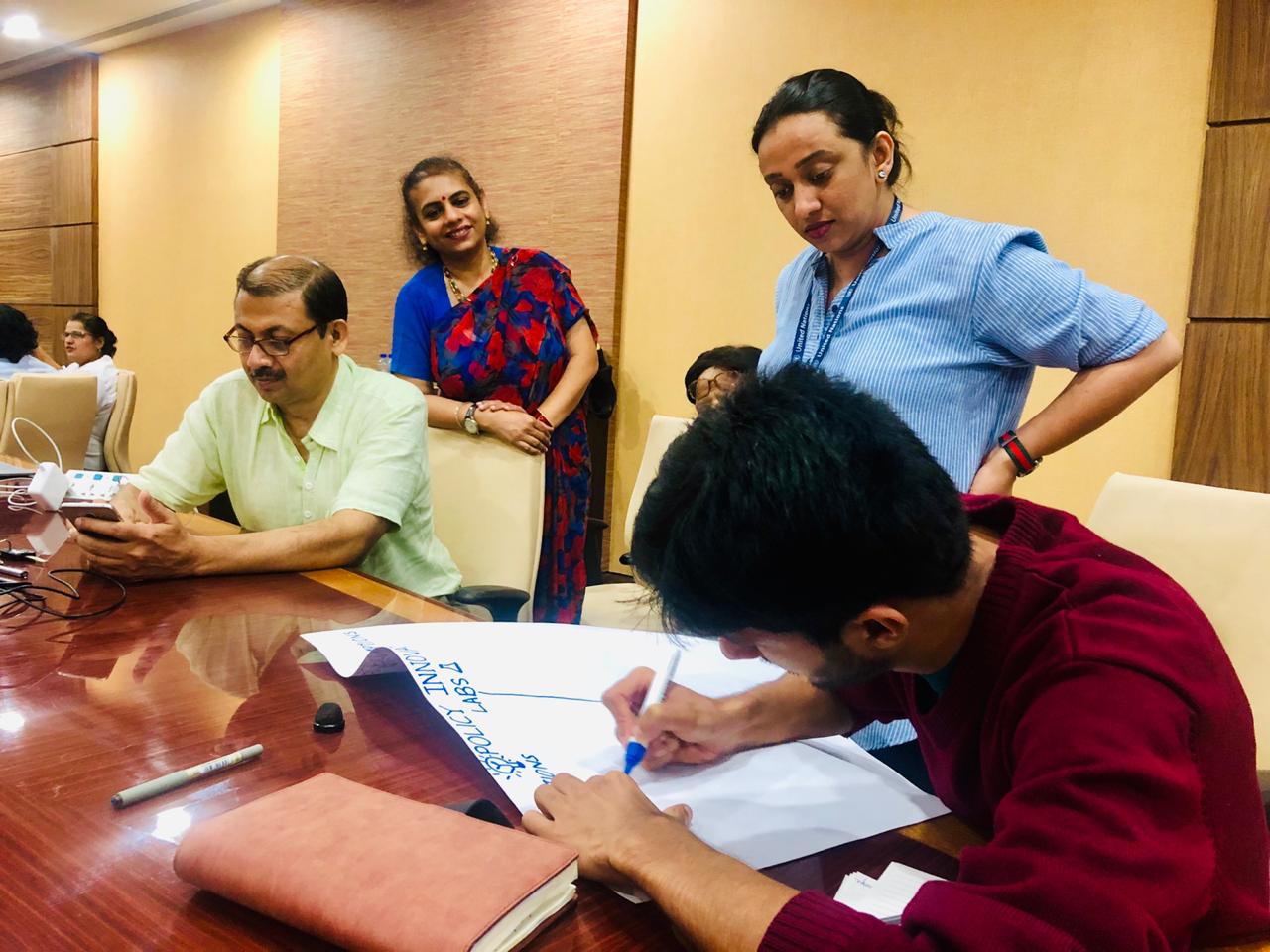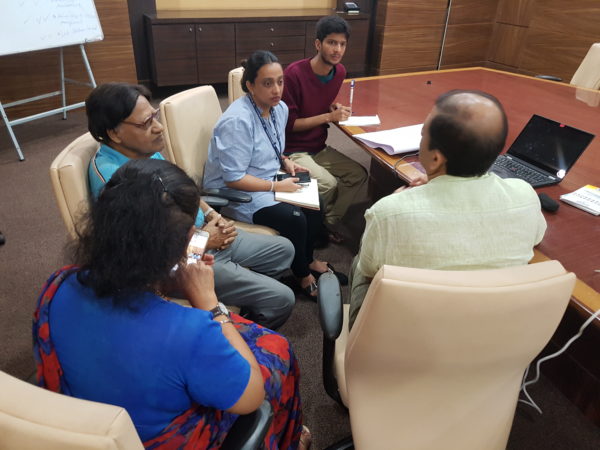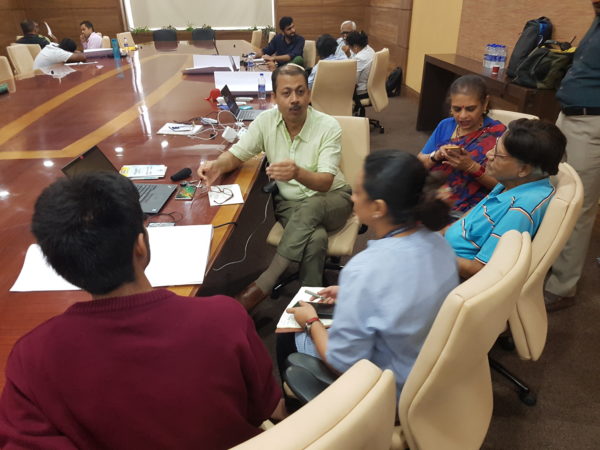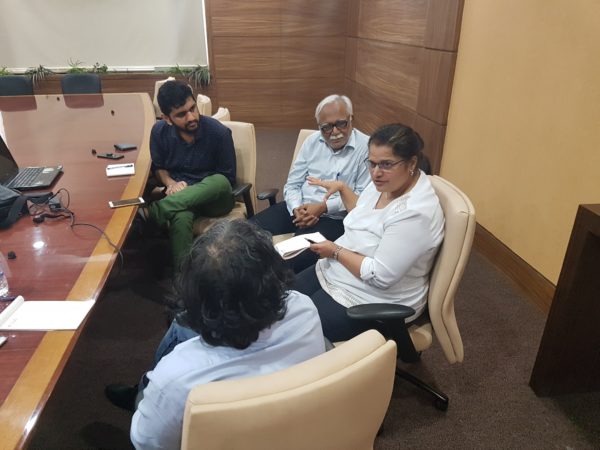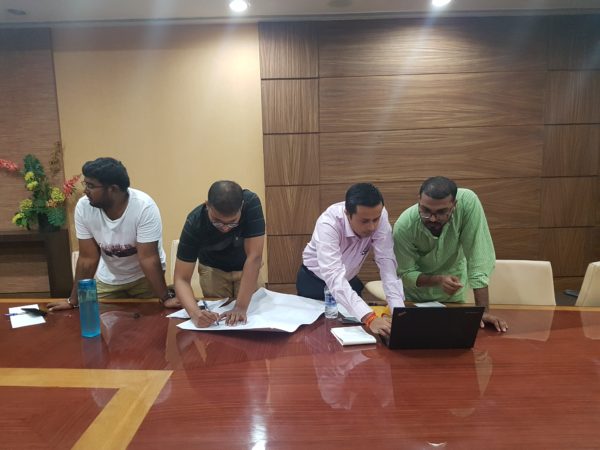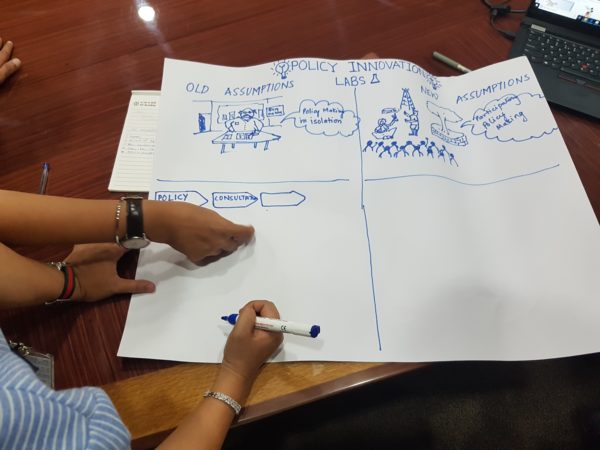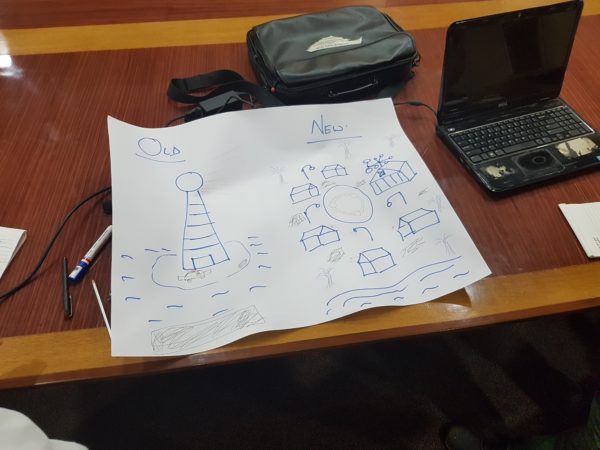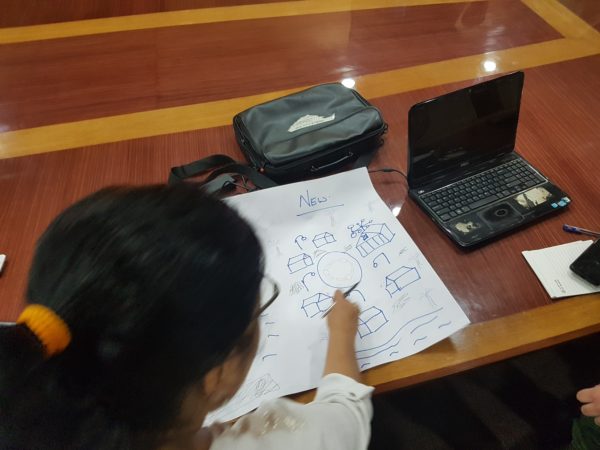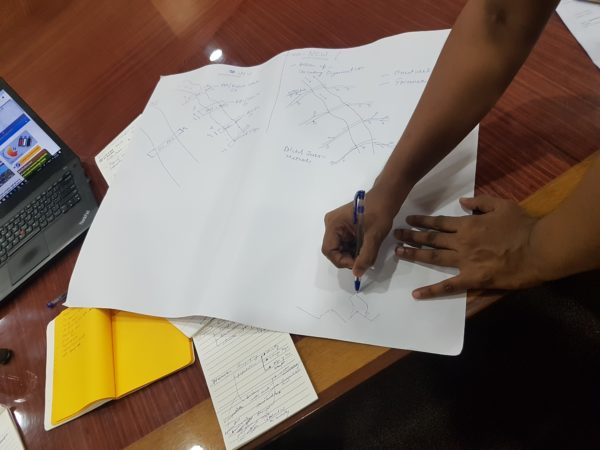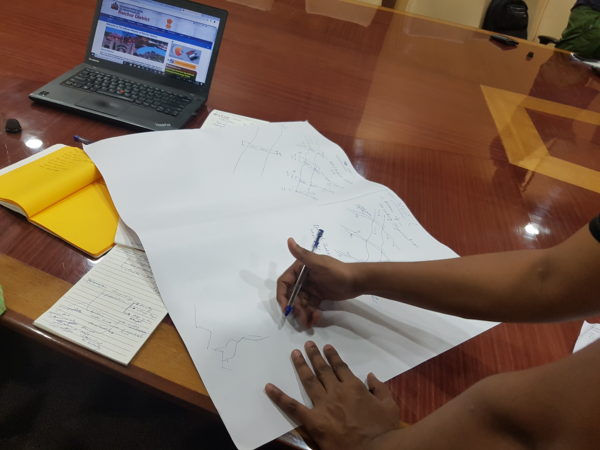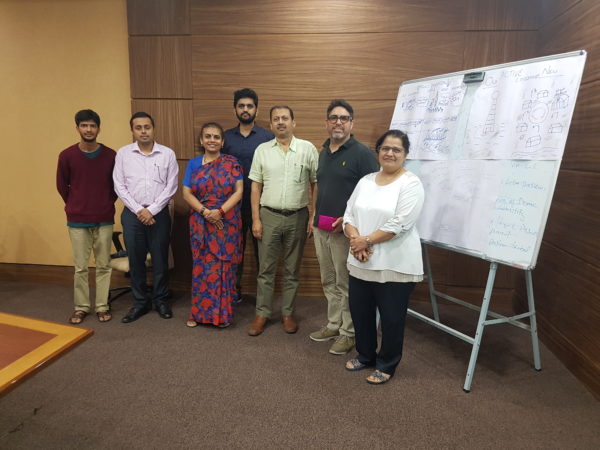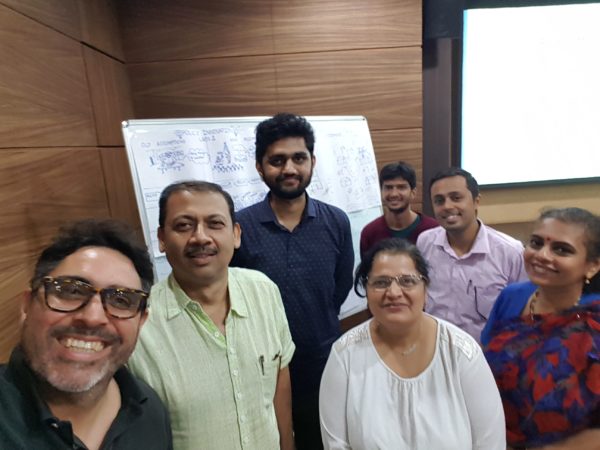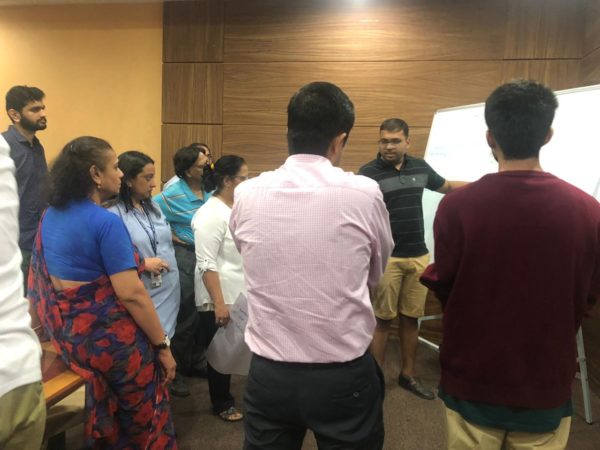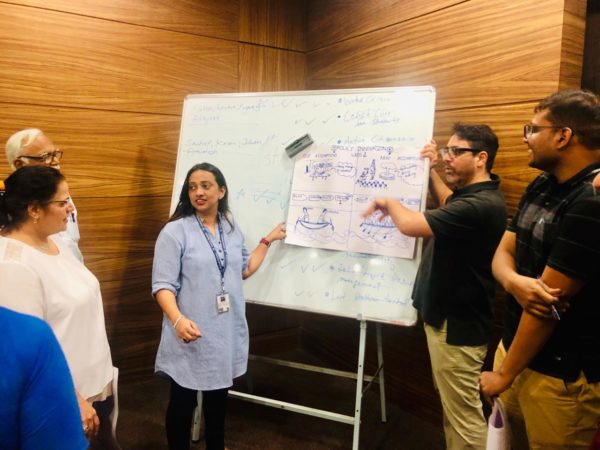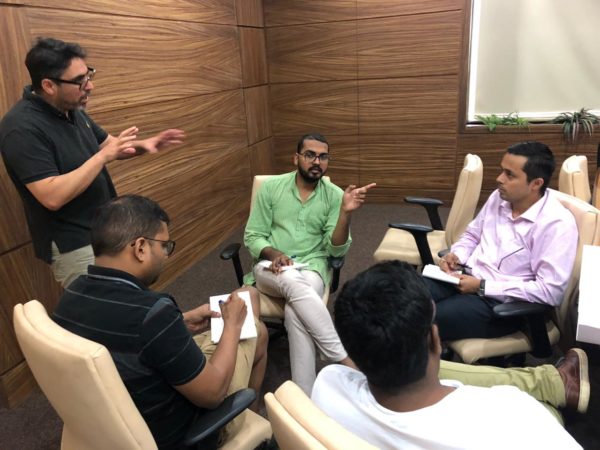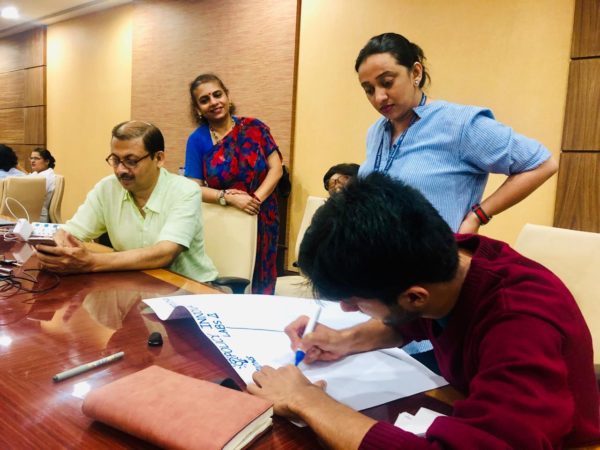A cosmolocal and commons based design course was held 0n September 20-21 2019 at the Indian Institute of Technology in Mumbai, entitled: “Leapfrogging Sustainable Development: Exploring the strategic futures of production and policy through cosmolocal and commons-based design”
The philosophy behind cosmolocalism emphasizes documenting innovation and keeping this knowledge open, so that it can be relocalized in other contexts and geographies around the world. It envisions a world in which each community’s innovations work is documented and remains open – so that we create a world of open designs and solutions. This becomes a resource for all of humanity to use for enhanced livelihoods and production within planetary ecological boundaries.
The course was a collaboration between Dr. Jose Ramos (Action Foresight), Dr. Raji Ajwani (IIT Mumbai and Centre for Policy Studies) and Professor Shishir K. Jha (IIT Bombay and Centre for Policy Studies) and Michel Bauwens (P2P Foundation) and began with conversations initiated in September 2018, between Raji and Michel. The course was designed and delivered by Jose with the support and sponsorship of Raji and Shishir.
Many countries are looking for new development pathways that can address systemic poverty and a host of sustainability and development challenges, including but not limited to the SDGs. Development strategists are increasingly keen to avoid “used futures” for development that perpetuate the development mistakes of the last few decades (large scale modernization projects with little sensitivity to local knowledge and needs, little regard to ecological boundaries, technological gigantism, etc.), and keen to find new approaches that work from community strengths, culture and needs while leveraging technological potentials.
The workshop attracted a diverse group of people, from the UNDP, local NGOs, PhD students and others interested in learning about the commons and cosmolocalism.
As a prototype, the workshop combined knowledge of a variety of cases (listed below), commons and cosmolocal concepts, together with a foresight to experimentation methodology called the Anticipatory Experimentation Method (AEM). The content and method used is documented here so that others can adapt either in their own contexts. We encourage others to use and adapt this to their own context – so that you can run something in your own community. We do ask that credit is given to the content developers in any reuse.
Day 1
Day one was a content heavy day, with the introduction of ideas and many cases.
| Introduction by Shishir Jha and Jose Ramos | Audio: https://www.dropbox.com/s/fu18ib644fvq4br/Iit%201.m4a?dl=0 |
| Cases by Jose Ramos | Slides by Jose
https://www.dropbox.com/s/bc70vmg8r5d4rop/ITT%20course%20cosmo%20local.pdf?dl=0 Audio presentation by Jose |
| Cases by Raji Ajwani | Slides by Raji https://www.dropbox.com/s/yqa1x9297ejewj1/FINAL_RA_SEPT19_For%20Cosmolocal_Jose.pdf?dl=0
Audio presentation by Raji |
| Presentation by Michel Bauwens (P2P Foundation) | https://vimeo.com/362939708 |
| Presentation by Andrew Lamb (Field Ready) | https://vimeo.com/362934622 |
| Presentation by Gabor Kiss (Envienta) |
Links to cases
- Hack the water crisis – http://hackthewatercrisis.org
- Fold it – https://fold.it/portal/
- Open Motors – https://www.openmotors.co
- Sensorica – https://welcome-cdn1.p2pfoundation.net/wp-content/uploads/2017/09/value_in_the_commons_economy.pdf
- Farm Hack https://p2pfoundation.net/wp-content/uploads/2017/09/A-New-Model-of-Production-for-a-New-Economy-FINAL.pdf
- Le A’telier Paysans https://p2pfoundation.net/wp-content/uploads/2017/09/A-New-Model-of-Production-for-a-New-Economy-FINAL.pdf
- Field Ready – https://vimeo.com/362934622
Wiki House – https://jfsdigital.org/articles-and-essays/2018-2/the-emergence-of-open-construction-systems-a-sustainable-paradigm-in-the-construction-sector/ - Wikifactory – https://wikifactory.com
- Envienta – http://ico.envienta.com
- AbilityMade – https://blog.p2pfoundation.net/67940-2/2017/10/02
- Open Insulin – https://openinsulin.org/
- SOULS – http://www.soulsiitb.in
Here are two presentations, one by Michel Bauwens and another by Andrew Lamb – both are excellent. Michel discusses many thing, but he goes into the importance and role of the urban commons – examples from Ghent and Bologna.
&
Michel Bauwens – P2P Foundation from Jose Ramos on Vimeo.
&
Andrew Lamb – Field Ready from Jose Ramos on Vimeo.
Day 2
Day two was the design day, where we ran the Anticipatory Experimentation Method, and 3 groups worked on developing project ideas:
The ideas included:
- Addressing drought among rural villagers
- Addressing the need for a policy innovation lab
Because there was so much content, the time needed to flesh out ideas wasn’t available. This is something that needs to be better balanced in future.
Explanation of Anticipatory Experimentation Method
AEM – https://www.dropbox.com/s/q3mg2ntlwq2llys/1%20-%20Bridge%20-%20Intro.ppt?dl=0
For an explanation of the method see this article on medium – https://medium.com/@joseramos_30450/mutating-the-future-the-anticipatory-experimentation-method-17ca1244da8
Concluding Reflections
- What was clear was that the content resonated with people. There was a natural energy and eagerness to delve into the domain and also to be creative.
- Also clear was the need to lean into the commons as a domain of knowledge and practice. Distributed manufacturing alone, technology alone, will not work to address the challenges people faced. Deep mutualization and commons governance (urban, digital, resource, etc.) are all needed.
- The conversation on enterprise cosmolocal quickly bled into a conversation on political economy. It was a natural progression because it is political economy that is the next frontier in terms of enablement. This is the partner state conversation and bootstrapping micro-political economies via the urban commons.
- Too much space was devoted to cases. It made the whole process feel a bit stifled. Next time more space needs to be devoted to the design process. It might be good to lay out some design principles first, so that we don’t have to go through endless cases to get the point across. As well, a cosmolocal canvas could be useful so people can explore a bit easier.
- It was a modest beginning. The whole thing felt a little rough around the edges, but it was also a prototype. So it was good to give it a try and get the experience. The next versions can build in the learnings.
I hope this content and documentation is useful in helping others use and adapt this in other contexts. Contact me if you need any advice in running this on your own.
And finally here are some photos for your enjoyment.

